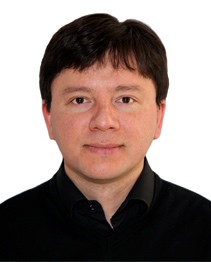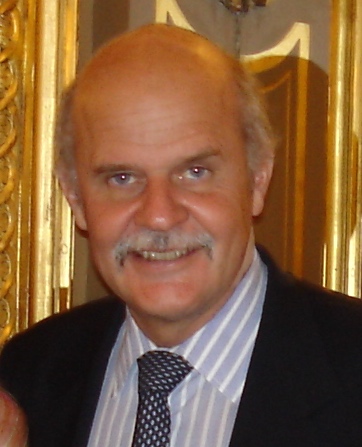 Human Dignity within Capitalism
Human Dignity within Capitalism
By Yovanny Bermúdez
During his pontificate, Pope Francis has constantly reminded us that the poor not only have a place in the church, but in history and society. The social teaching of His Holiness puts the person before everything else, especially the “discarded” ones — those who suffer the consequences of an economic system focused on production and profit.
The pope does not deny the advantages of this system, but he denounces the instrumentalisation of the person, the view that he is an object of production. Therefore, the first clear and undeniable lesson that Francis states is the defense of the human person’s dignity.
Along with this, Francis emphasizes the search for the common good. He denounces that the profits of a few are curtailing the welfare of the majority — that corruption, a lack of regulation, tax evasion, perpetual power, fragile democracy, unfair wages, land destruction, human-rights violations, etc., undermine the common good, as they diminish the chances of a dignified and happy life.
The successor of Peter recalls that the rights and needs of the people cannot be ignored or violated, especially those of the poor and “discarded” ones.
Therefore, Francis is neither being a populist nor a communist. Rather, he is saying that human dignity and the common good have been forgotten in the language of the social and economic welfare of our current society. The pope is proposing to look at reality in another way, from the view of the impoverished peripheries of the global society, from the perspective of those who suffer from injustice, to find new ways to become accountable to one another.
This is not ideology; this is justice. For this reason, the pope calls for an awakening from the “globalization of indifference,” and invites us to create “new development models that combine Christian tradition and civil progress, justice, and equity with reconciliation, scientific and technological development with wisdom, fruitful suffering with hopeful joy. We can only keep that hope with large doses of truth and love, the foundations of reality, the revolutionary engines of the authentic new life.”
Francis invites us to build the “culture of social encounter,” which is consolidated through dialogue. It enables citizens to demand their rights and fulfill their duties; prevent abuses of power; prevent threats that seek to silence dissent, and promote respect for life.
Hence, the social encounter is seen as a threat because it exposes “contemporary slavery,” and the task we have of rebuilding the basic relationships of coexistence, along with a resolute refusal to be complicit in humanity’s suffering and evil.
Given the globalization of indifference, Francis asks us to be the architects of a globalization of solidarity and fraternity. This will give hope and bring new perspectives as we face with courage the problems of our time.
To rethink solidarity and fraternity is not a question of communism, but of ethics. The centrality of the human person is not a flag of capitalism or the revolution, but the responsible presentation of a democratic society, capable of offering possibilities of a decent life for all its citizens.
Yovanny Bermúdez is a Venezuelan Jesuit priest and lawyer, with studies on philosophy and theology.
 Pope Francis, a Leftist?
Pope Francis, a Leftist?
By Alejandro Chafuen
EspañolSoon after the election of Pope Francis, commentators started to ponder: is the pope a socialist? This was especially the case in the United States. Some of the statements in his new Encyclical letter will revive the debate.
The terms that could better describe the pope’s political economic views, such as “Peronism without corruption,” “third wayer,” or “corporatist,” are too difficult to explain to the average reader or listener. So it is no surprise that the adjective “socialist,” in conjunction with “Pope Francis,” began to appear frequently in US media, especially among popular conservative radio anchors, such as Rush Limbaugh or Mark Levin.
Socialism is usually regarded as left wing, so it is natural for people to ask: is the pope left wing?
As I am an economist, I sometimes view all by the lens of my discipline. “Leftist,” in my vocabulary, means someone who advocates and promotes an increased role of the state in economics; wants to expand government control of the means of production; pushes for a redistribution that disrespects property rights; and supports and defends regimes that promote similar policies, such as Cuba or Venezuela.
But not everything is economics or politics. Take the topic of the family. Many left-wing ideologies, like Marxism, attack private property and the traditional family with almost equal passion. In this topic the pope does not fit into the left-wing mold.
In Argentina, for example, in his role as Cardinal Bergoglio, he had strong words against those who were trying to redefine marriage. He even defined it as a “diabolical campaign.” He never aligned himself with the branch of liberation theology that relied on Marxism as its main political and economic foundation. In addition, during the military government, he was not the strong critic that the left had hoped for.
A leftist would have never appointed George Cardinal Pell to be the first prefect of the newly created Secretariat for the Economy, which has authority over all economic activities of the Holy See and the Vatican City State. Cardinal Pell does not endorse much of the climate-change alarmism, and he understands the important role of free enterprise to achieve prosperous and virtuous societies.
Last year, in a preface to Poor for the Poor, a book published by the Vatican, Pope Francis wrote: “this is a great truth. Money is a tool that in some way — such as property – extends and enhances the capabilities of human freedom, allowing it to operate in the world, to act, to bear fruit. In itself it is a good tool, as almost all the things that man has its disposition it expands our opportunities.”
He cautioned that the same tool can be used for evil goals. Some months later in a public remark he said “money is the dung of the devil.”
The pope believes that if the key actors in governments, businesses, and the labor force would just behave well, then we would all better off, especially the poor. A “hopeful” interventionist perhaps. A leftist? Not on many fronts.
Alejandro Chafuen is the president of the Atlas Economic Research Foundation since 1991 and a member of the board of advisers to the Center for Vision & Values and a trustee of Grove City College. He is also the president and founder of the Hispanic American Center of Economic Research. Chafuen serves on several boards, including the Chase Foundation of Virginia, the Acton Institute, the Fraser Institute (Canada), and is an active honorary member of the John Templeton Foundation. In 2014, he received the Walter Judd Freedom Award from the Fund for American Studies. Follow @Chafuen.
[yop_poll id=”12″]
 Versión Español
Versión Español



 Human Dignity within Capitalism
Human Dignity within Capitalism Pope Francis, a Leftist?
Pope Francis, a Leftist?








